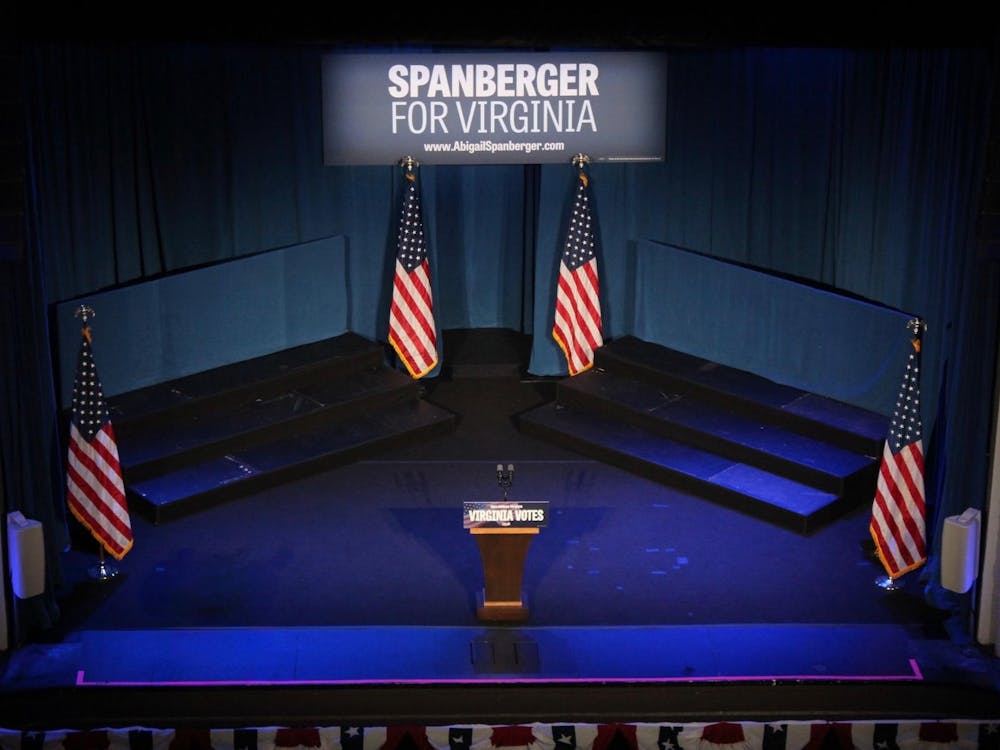President John T. Casteen, III was the third highest-paid public University president in the country last year, according to a recent report by the Chronicle of Higher Education.
Despite the struggling economy, Casteen’s almost $800,000 salary will be the same next year, University spokesperson Carol Wood said, explaining that despite decreases in commonwealth funding imposed by Gov. Tim Kaine, no faculty salaries have been cut at the University.
Casteen earned $797,048 for the 2007-08 academic year, an almost $45,000 increase from his salary the year before. Virginia Tech President Charles Steger ranks close behind Casteen, with a salary of $719,892.
The three highest-paid Virginia public university presidents — Casteen, Steger, and Virginia Commonwealth University President Eugene P. Trani — each receive $176,113 of their respective salaries from public funds. Private funding, costs of housing, deferred compensation, retirement pay and bonuses round out the executives’ salaries.
Casteen’s total compensation includes $310,887 from private sources, $15,000 from private sources for his car, a house provided by the commonwealth and a $23,400 performance bonus.
The more than $300,000 in private funding comes from an established chair endowment provided by a donor and a designated endowment by the Board of Visitors to fund faculty salaries, Wood said.
The Board of Visitors sets President Casteen’s salary in the fall, when all other faculty salaries are set, Wood said. The Board also conducts “rigorous” annual performance reviews of the University’s president, through which it determines whether to grant Casteen a raise, according to an e-mail from Wood.
University presidents have come under fire from some groups for enjoying high salaries during difficult economic times, as some students struggle to finance their tuition and some institutions are forced to implement hiring freezes. U.S. Sen. Chuck Grassley, R-Iowa, a ranking Senate finance committee member, released a statement last Friday urging institutions to clarify why executives are paid the amounts they are.
“The Chronicle’s study shows that the executive suite seems insulated from budget crunches,” Grassley, a representative for whom was unavailable as of press time, said, according to the release. “While endowment values and pay-outs for financial aid may be decreasing, there’s still money for the president’s salary increase.”
In the release, Grassley said it was “surprising” that many public universities raised presidents’ salaries last year and asked those universities to make the reasons for the increases more transparent.
“In these hard economic times, apparently belt-tightening is for families and students, not university presidents,” Grassley said, according to the release. “Maybe the salary increases can be justified, but students, parents, and university boards should have full information so they can decide for themselves.”
Wood, however, said Casteen’s salary is justified.
“First of all, let me just say President Casteen earns every penny he makes,” Wood said, noting Casteen’s 19-year tenure as president of the University and many responsibilities. “I think sometimes people don’t understand what the job of a university president is today.”
Wood said that many factors should come into play when assessing a college president’s salary and that attention should be paid to the different operations under a given university’s umbrella.
“We are a new model of public education because we are increasingly reliant on private giving,” Wood said. “Not only is [Casteen] running an academic institution but a hospital and a city. Do all these other [schools] have hospitals as part of their universities? If you look at Virginia Tech, they don’t have a hospital. The [Chronicle Report] doesn’t mention that.”
Bill Shiebler, national field director of the United States Student Association, said salaries of public university presidents should be treated differently than those of private university presidents.
“I think top-level administrators need to be held to a higher standard at public universities because it’s public funds, which are taxpayer dollars which are going towards those salaries,” he said.
Shiebler emphasized, though, that lowering university presidents’ salaries does nothing to help students finance their educations.
“I don’t think students or the public should be confused for one second that lowering the salary for a president or chancellor at a university is going to make it more affordable for students to go to college,” Shiebler said. “No matter what a top administrator is paid, the bottom line is that students won’t be able to go to college ... until the state government finds ways ... to make it more affordable.”
W. Heywood Fralin, rector of the University’s Board of Visitors, said “good” college presidents might be underpaid.
“This is particularly true when one looks at their earning potential in the private corporate world,” Fralin noted in a statement provided by Wood. “In John Casteen’s specific case he successfully led the largest capital campaign in U.Va.’s history several years ago and is now leading a campaign which at the time of its announcement was the largest ever undertaken by any university in the country.”
Fralin stated that Casteen has created strong academic and operation teams in addition to leading the Capital Campaign, all of which helps the University achieve high national rankings.
“When viewed from all perspectives, his salary appears to be quite justified,” Fralin said.






